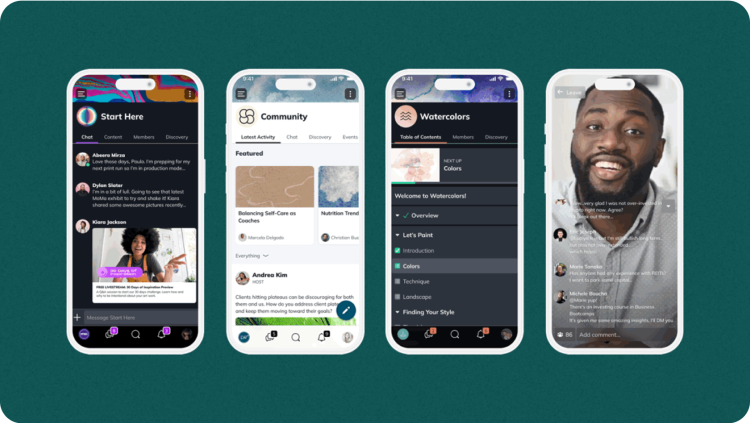Online Courses
The 9 Best Alternatives to Udemy for 2025
Udemy is the leading marketplace for online courses, but it's not the best option for either teachers or learners.
Author
Mighty Team
Last Updated
February 6, 2025

Table of Contents
Whether you’re just starting to explore the option to create your own online courses or are looking to level up your course sales, you've probably come across the name Udemy. It's a popular course marketplace with high name recognition.
But Udemy has some serious drawbacks, limiting your course business. In this article, we'll talk about the pros and cons of Udemy and introduce you to some better options.
Note that this article focuses on Udemy alternatives for instructors. But it will be a good intro to course platforms if you're thinking of taking a course.
If you want more support in building your online course and community, come join OUR Mighty Community for free and meet other new and established community owners! We’d love to meet you. Join for free!
What is Udemy?
Udemy is the leading marketplace for online courses with over 210,000 courses, 75,000 instructors, and more than 64 million students. It's been around since 2010, when Gagan Biyani, Oktay Caglar, and Eren Bali founded it. The Business Plan has almost 15,000 customers and includes over 10,000 premium English courses and 13,500 in other languages.
It's a marketplace platform, meaning that students search through hundreds of courses and find one that they like (we'll cover this below). But it has different monetization models, including a flat membership fee and individual course sales.
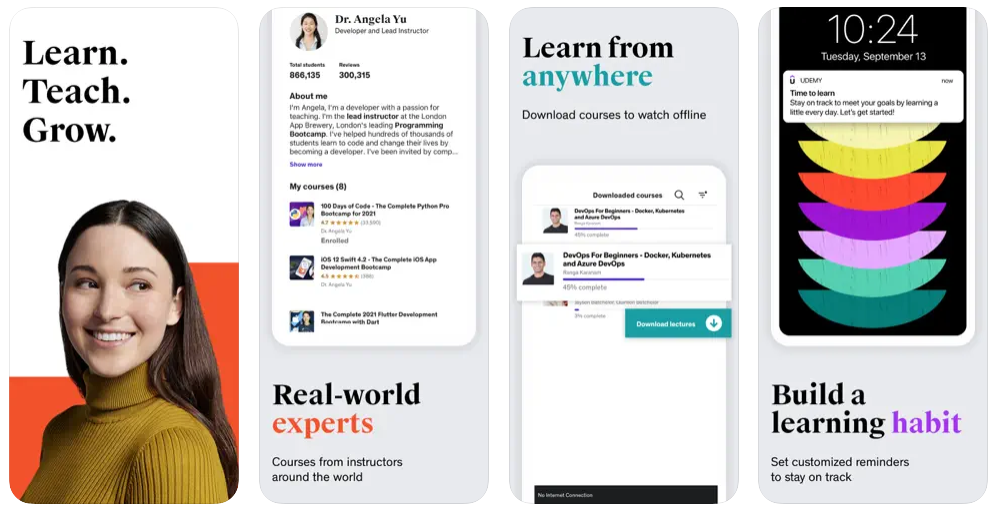
3 ways online courses happen
Before we cover Udemy alternatives, let's look quick at how course platforms work. This will help you know what the best path for your course is.
There are three ways course creators, trainers, and educators deliver courses.
The marketplace approach: Udemy, like Amazon, is a marketplace. A course instructor like you creates and packages a course and posts it for sale on a site that acts as a warehouse for all kinds of courses by all kinds of creators.
The pre-recorded course website: Many of us think of these when we think of an online course platform. When a course creator has recorded a course and posted it somewhere you can pay to access, that's a pre-recorded course website.
The engagement course platform: A new crop of course platforms are changing the game. We're seeing courses taught live as cohort courses, or courses mixed with communities, live events, challenges, and more.
Udemy strengths
It gives you exposure. Udemy has millions of learners searching for courses. If you can stand out, people can find your course.
You can still sell a course: Many marketplaces have gone to a flat membership fee, but Udemy still lets you sell a course (from $0 - $299).
It has a decent compensation model: Every course marketplace compensates creators differently--but Udemy is one of the better ones. If you bring a student, you keep 97% of the revenue. But if students find you on Udemy, you keep 37%.
Udemy may help with promotion. Udemy supports its course instructors with its own marketing and promotions, featuring courses that are well-reviewed or are a good match for its targeted ads and emails.
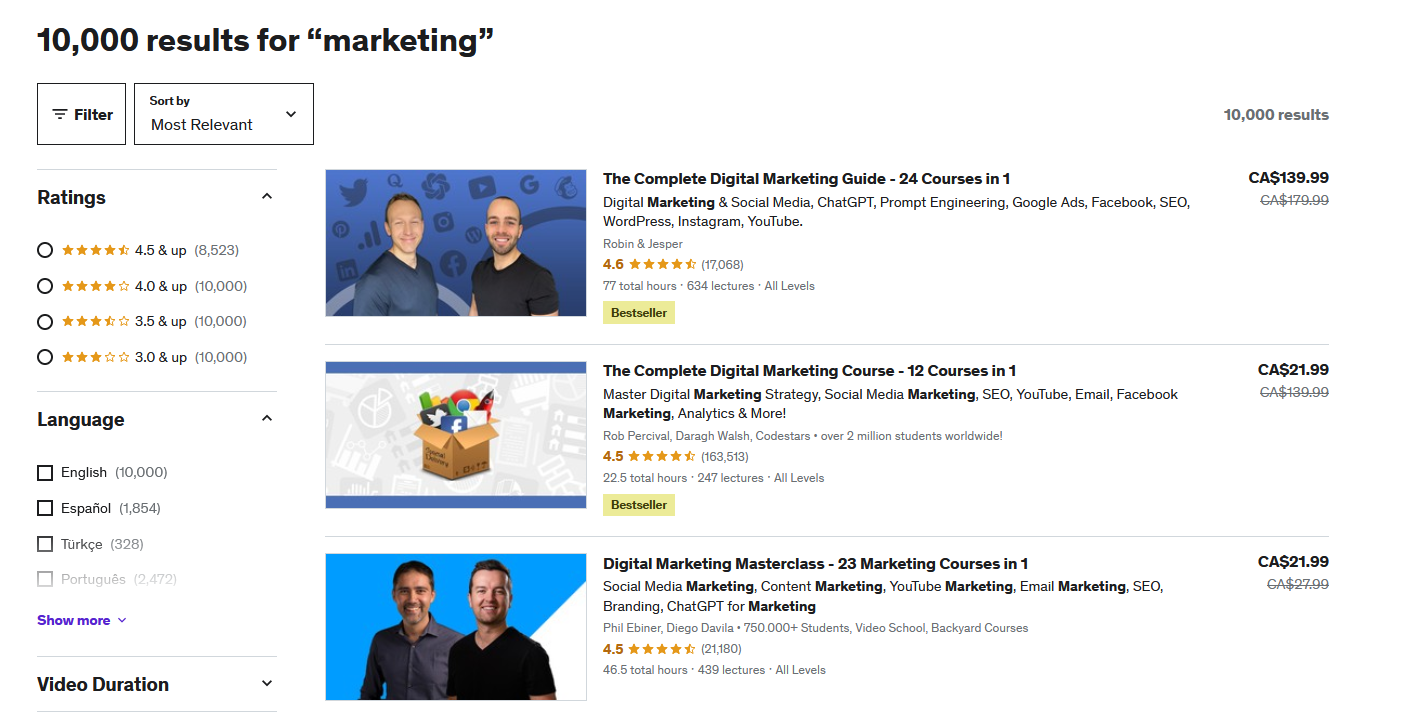
Udemy weaknesses
They take your revenue. Udemy still takes 63% of the payments for students who find you on their platform. Even if you bring the students, they take 3%. Which isn't much, right? Well, if you brought in 50 students a month for a $100 course, you're already paying Udemy $150/mo, more than the average course platform.
You get zero engagement options. Udemy is old-school, specializing in pre-recorded courses. There's a place for that. But adding in live elements, communities, events, or even teaching the course live helps students to stay motivated and succeed.
You're competing to be seen. There are thousands of courses on Udemy and the chances of students finding yours is low.
You're building Udemy's customer base, not yours. When you bring people to the platform, Udemy keeps them. Imagine you released a second course and wanted to email everyone who took your first course. You can't. They're not your customers.
Udemy can slice your profits even further. It's optional, but when you let Udemy market your courses (which sounds great), they can offer deep discounts, taking more out of that 37% you get to keep.
You can't build your brand. If building a visible brand matters to you, don't build on Udemy. You get zero options for creating a course that looks and feels your own. It will be identical to every other one on the platform.
The best alternatives to Udemy
1. Mighty Networks
The best all-in-one course platform
Mighty Networks is a course and community platform like no other, giving you the most flexible Udemy alternative to build the brand you want.
An intuitive LMS for async courses. Build beautiful courses easily, adding in videos, audio, text, formatting, questions, and downloads.
Native livestreaming and live event features for a cohort course. With multi-speaker livestreaming, present live events with RSVP, in-event discussions, or even a Zoom integration if you prefer. You can presell a live course (and/or sell the recording after if you want).
Built-into the top-ranked community platform. Your course can happen in community, add discussions, member profiles, chat & messaging, or private groups (e.g. coaching or masterminds).
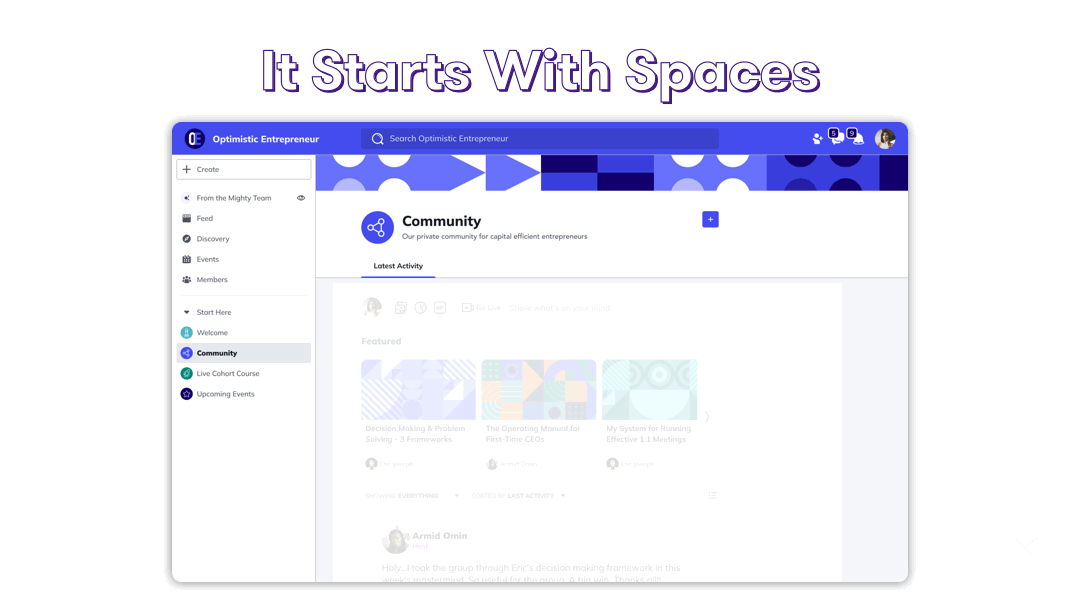
There's no other course platform that lets you deliver YOUR course in any way you want.
Plus Mighty Co-Host™ adds in AI power with instant course outlines, auto landing pages, the "make it better" text editor, member profile assist, suggesting members to connect with, and icebreaker generator. It's community and course AI like nothing you've seen before.
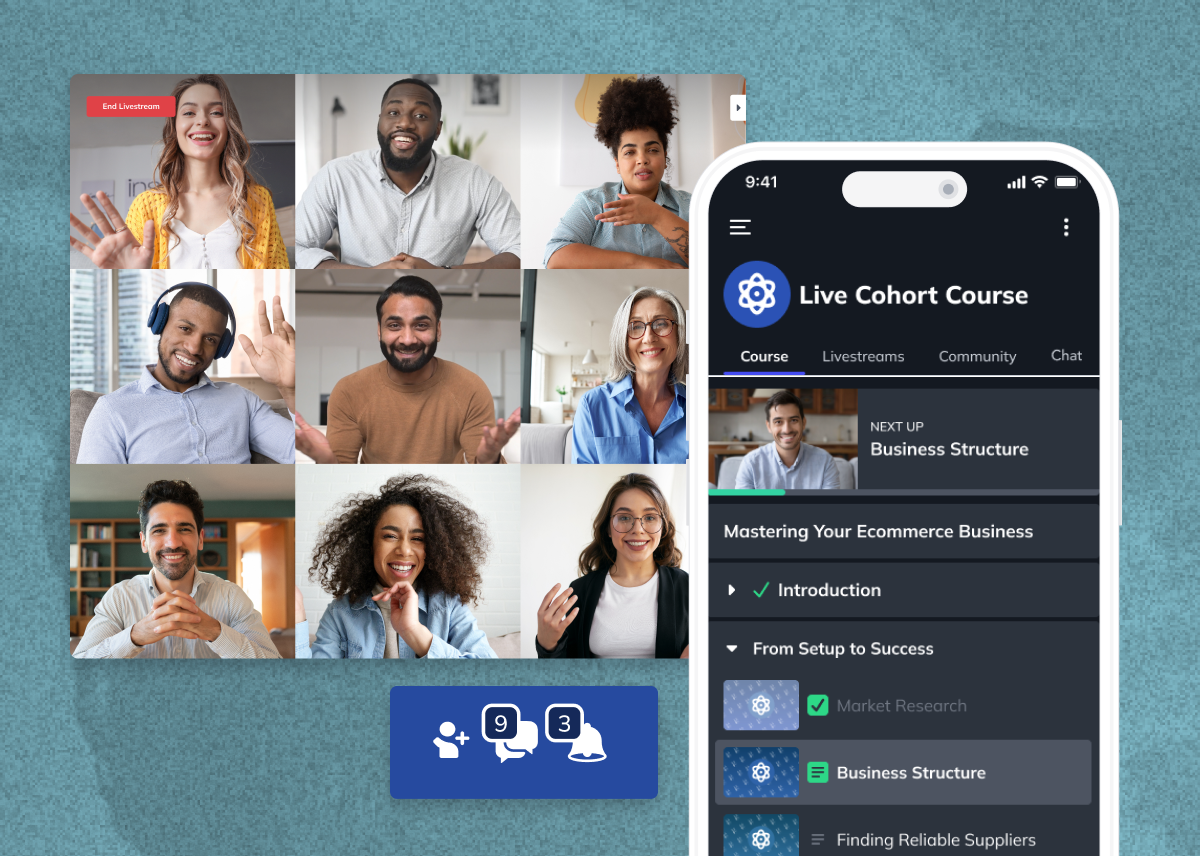
You can sell your course in 135 different currencies, bundle with community membership, coaching groups, masterminds, paid virtual events, and more.
With Mighty's ConvertKit integration, you can bring email and courses together--even selling a course from your newsletter.
And Mighty comes with a beautiful app for every device that builds YOUR brand. You can even get a branded app with Mighty Pro.
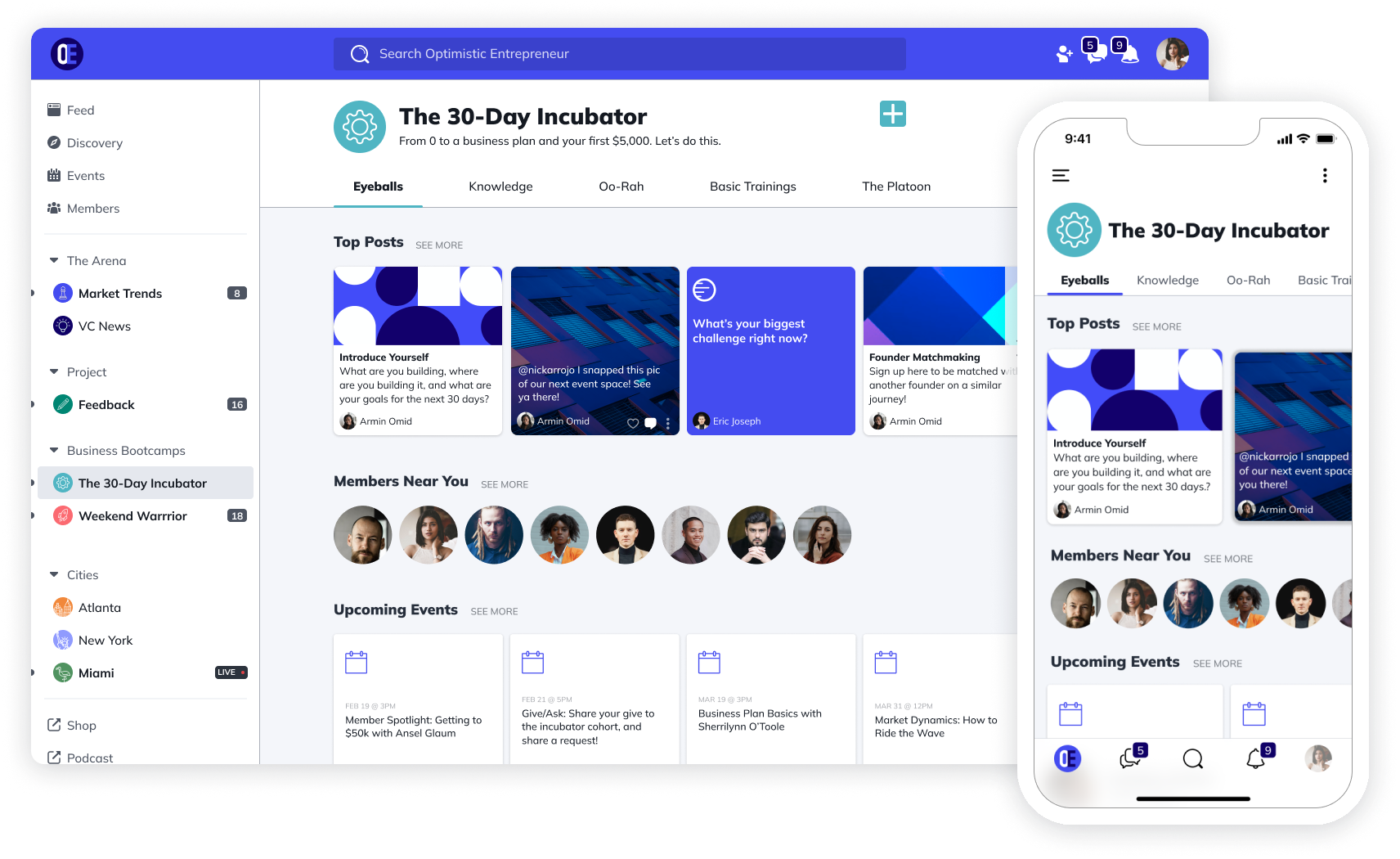
Mighty Networks Overview
2. Skillshare
The next best course marketplace
If you choose to stick with the marketplace approach, but still want a Udemy alternative, your next best open course marketplace is Skillshare.
After Udemy, Skillshare is much more niche. It boasts 25,000 courses and 8 million students–a fraction of the size of Udemy–and also leans towards creative and artistic skills.
Skillshare does best for creative skills. You can find courses on anything, but the creative courses are the strongest.
Skillshare lets you add resources and projects to your courses. This lets you add some engagement that's rare for course libraries, and lets students build something real.
Lessons are short (over 30 min. is discouraged), digestible, and viewable offline in an app.
Skillshare is good for exposure. There are a ton of creatives learning there and you can get your brand alongside some of the best.
But Skillshare has a worse revenue share than Udemy. Skillshare offers your online courses via a monthly or annual subscription fee paid to them. Then, as an instructor, you earn your income based on an algorithm that divides revenue between those who had their videos watched that month.
As a marketplace online course platform, Skillshare has the same problems as Udemy. You don’t own your audience, you’re pitted against competition, and your income is highly variable.
Skillshare Overview
3. Kajabi
Complex marketing for pre-recorded courses
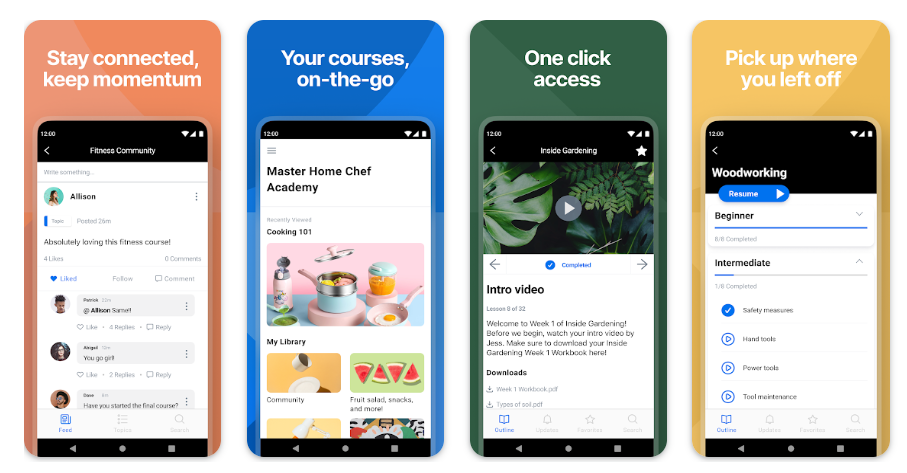
Known for its top-of-the-line tools for the business and marketing side of courses, Kajabi is a stable, savvy Udemy alternative for running online courses on your own website. Instructor success is not subject to platform pricing or marketplace forces, and, on Kajabi, some instructors are making millions of dollars each year.
Kajabi offers a good, flexible LMS for creating asynchronous courses. You can add different types of course content with different delivery methods (drip, self-paced, etc.) and engaging quizzes and polls.
Customize course pages (or choose from templates). This helps you get the look and feel you want for your course.
Sell with integrated marketing tools like funnels, up- and-downsells, waitlists and purchase windows, triggers, email marketing, and segmentation.
Checkout and payments are clean, easy, and support multiple currencies around the world.
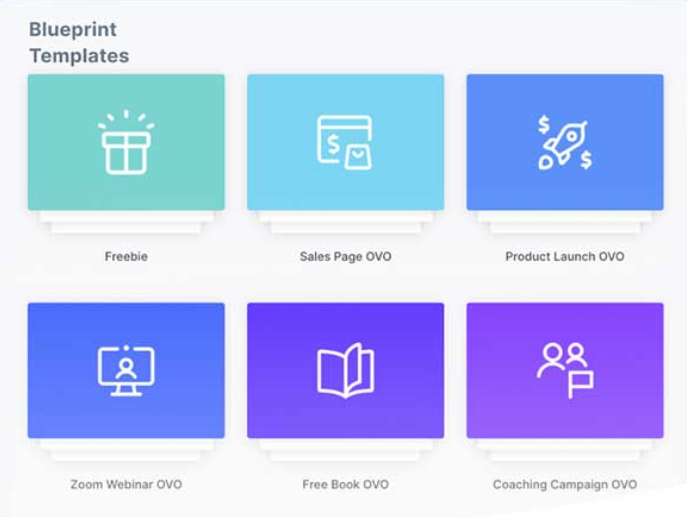
Kajabi's community and engagement features have improved with its purchase of Vibely, a chat app. Where it only had a basic discussion forum before, it now has some event, video-chatting, and livestreaming functions. But Kajabi's "Community 2.0" still exists on a separate platform with a separate log-on. Kajabi even runs its own community in a Facebook group.
This means Kajabi is great for a pre-recorded course, but not so much for engagement features and live learning. And Kajabi's marketing tools are awesome, but they come at a high price--you'll need to decide if the cost of Kajabi is worth it for the benefits.
Kajabi Overview
4. Maven
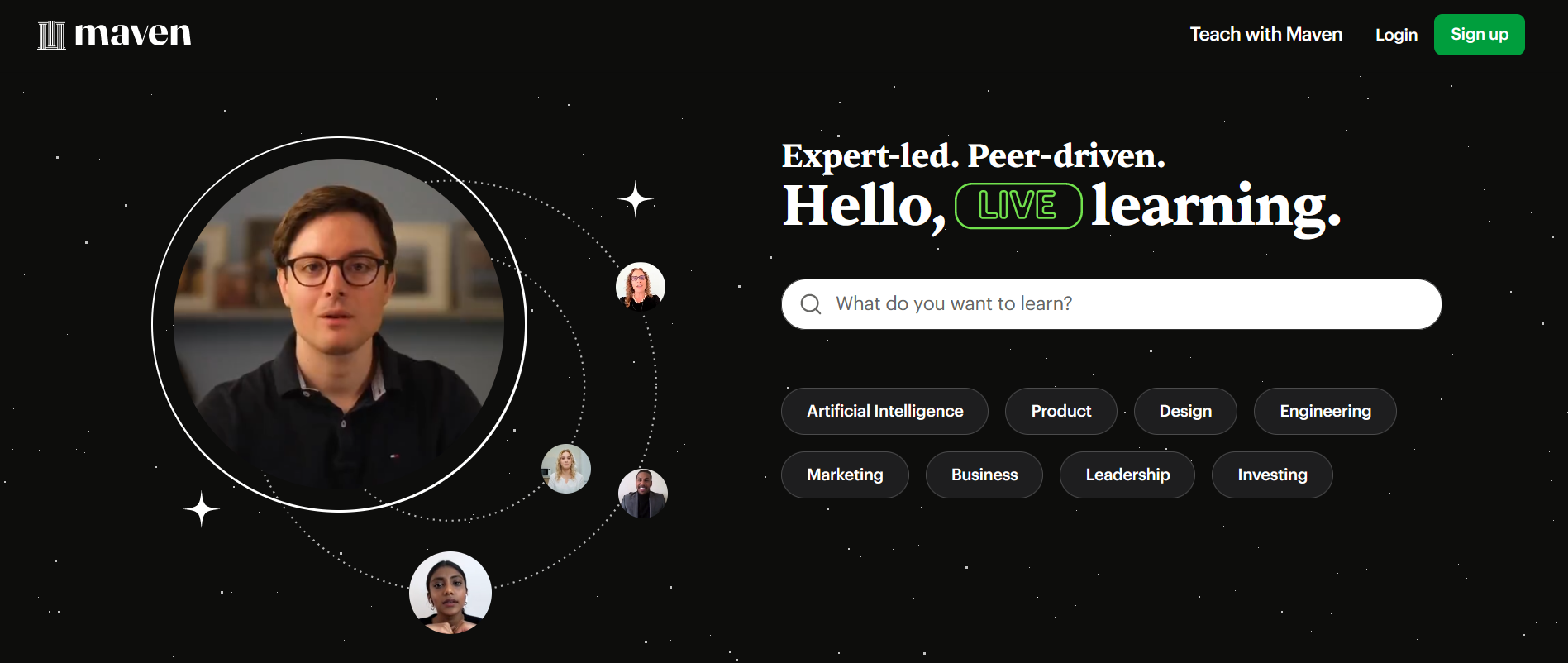
Maven is a cool concept for a course platform, based around pre-set cohort courses. Instead of having a course library, there's a directory of upcoming courses and students can purchase and join in for live instruction.
If you're a teacher who wants to teach on Maven, you'll need to apply and pass a screening process. However, if you get in, you get access to Maven's teaching community, as well as training and course templates.
The margins are higher from live teaching, since you can sell the experience as a high-ticket product. This makes live instruction a good option for teachers.
Maven takes care of hosting and marketing, which is a tempting offer for a beginning instructor.
The challenges with Maven as a Udemy alternative are the same as any other online course marketplace, though. You need to be approved, you don't own your relationship with the students, and you need to stand out.
Plus Maven keeps 10% of your revenue, which is a lot. If you're teaching a $100 course to 50 students, you've paid Maven $500--that's more than any course platform on this list.
Maven Overview
5. Udacity
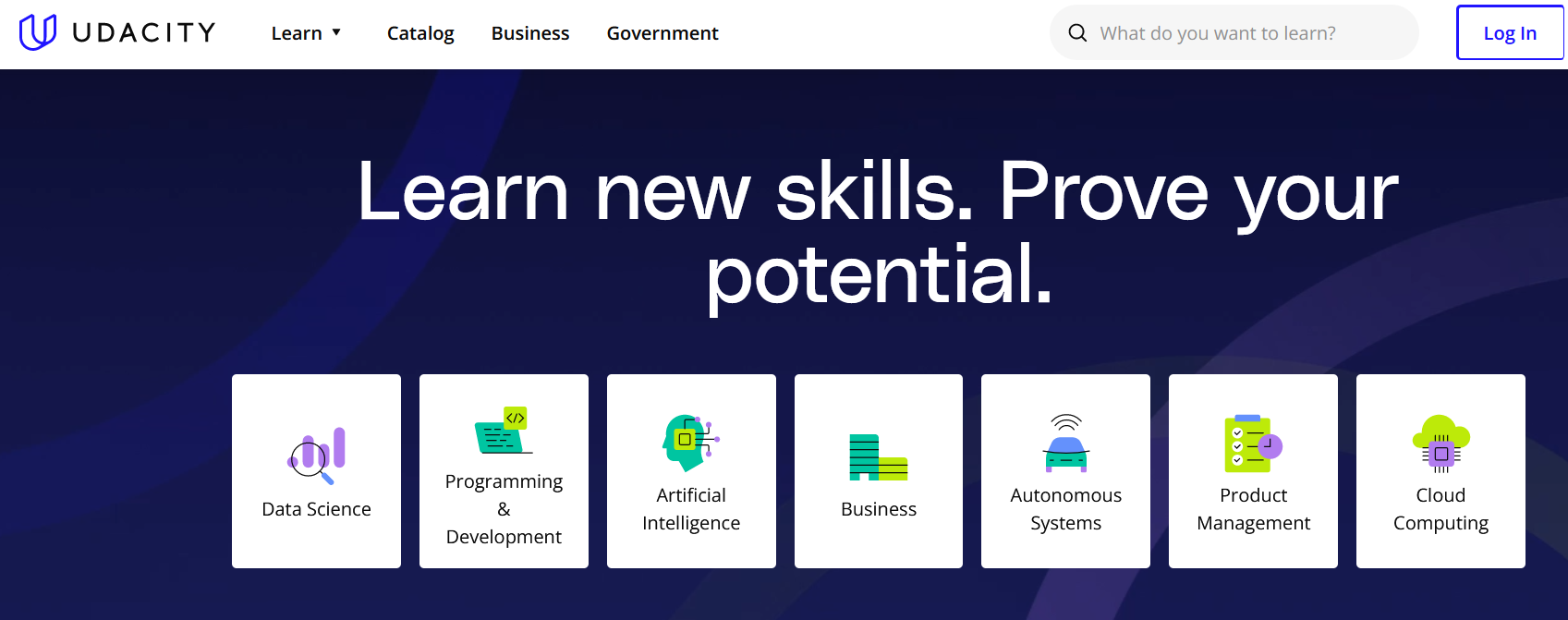
Udacity is a Udemy alternative for industry professionals and experts. As an online learning platform, Udacity specializes in tech and digital skills, with 80+ nanodegree programs built in.
To teach on Udacity, you need to be hand-picked as an industry expert. And if you are, they will pay you--no matter how many students take your course.
For students, Udacity offers a really cool value-proposition:
Tech courses taught by leading industry experts. You can learn from some of the best in the world.
A chance to create some real-world projects that can be spun into a portfolio.
Some community built into the process, letting students network with others.
Udacity has corporate subscriptions, for individual students the cost is high: $249/mo. As an instructor, you're more like an independent contractor than someone starting a course business. This might be okay, most of Udacity's instructors are already busy industry pros. Again, it depends if this is what you want for your course.
Udacity Overview
6. Coursera
Coursera is an alternative to Udemy that has a lot of the same course options, but with one twist--Coursera can lead to a college degree. Coursera is a unique offering, in that it has accreditations from universities, colleges, and tech companies built-in. So while getting a course certificate is nice, getting a college credit could be better. Of course, Coursera does have some lower cost (and even free) courses, and a membership program without accreditation that's affordable.
The downside for teachers is that you need the affiliation to teach on Coursera: either an academic affiliation or a connection to a major business or tech company.
But if you are accepted to teach on Coursera, you're reaching 129 million users and you'll get good support.
If you qualify, you'll need to contact Coursera to find out if they're willing to work with you and whether the compensation would be worth it. You'd need the go-ahead from your employer too.
Coursera Overview
7. Skillsoft
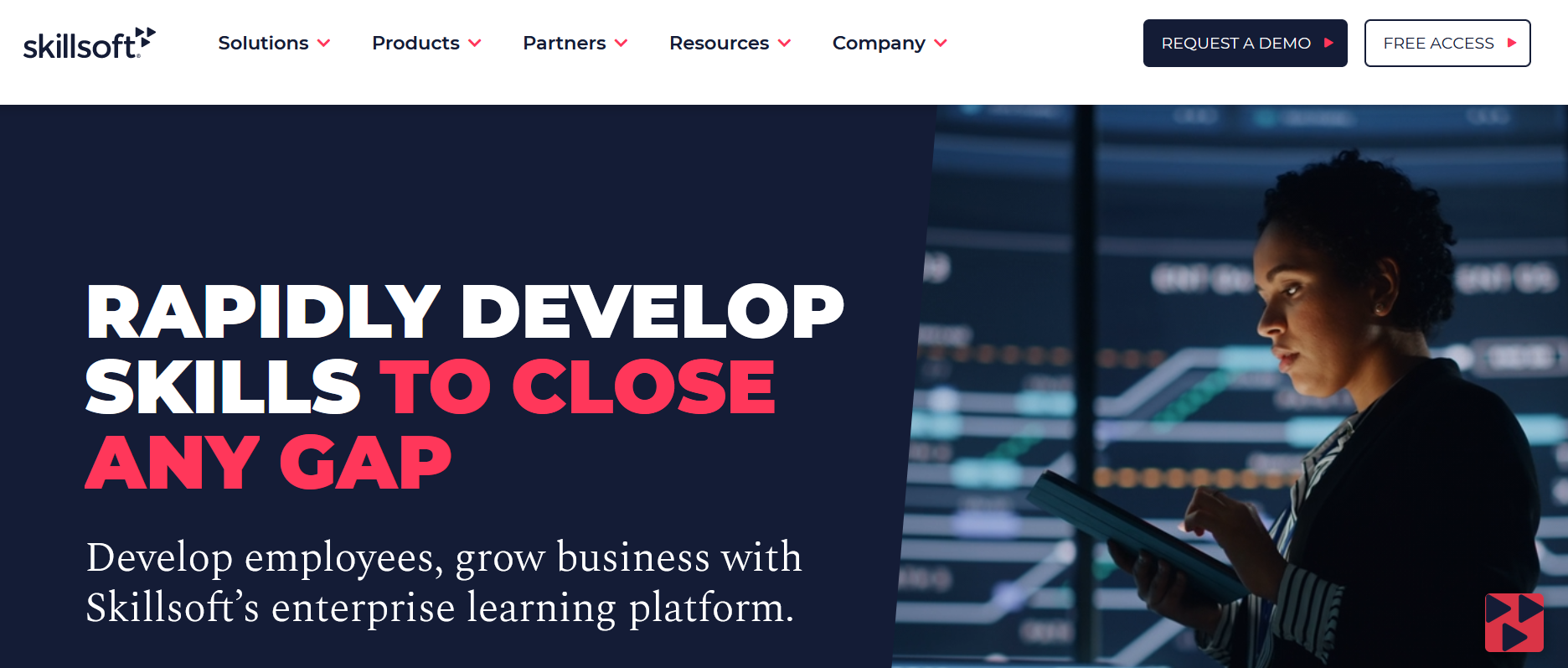
Skillsoft is an online learning platform targeting workplace skills that could be a good Udemy alternative for some. It comes with custom learning paths so that employees can level up, but also some personalized course selection and KPIs built in. One cool feature is the AI chatbot that lets you practice skills in real life settings (e.g. running a meeting).
Potential teachers need to apply for an opening in Skillsoft's "career" section, but Skillsoft has also been known to acquire courses from other platforms (like Codecademy).
Skillsoft Overview
8. DataCamp
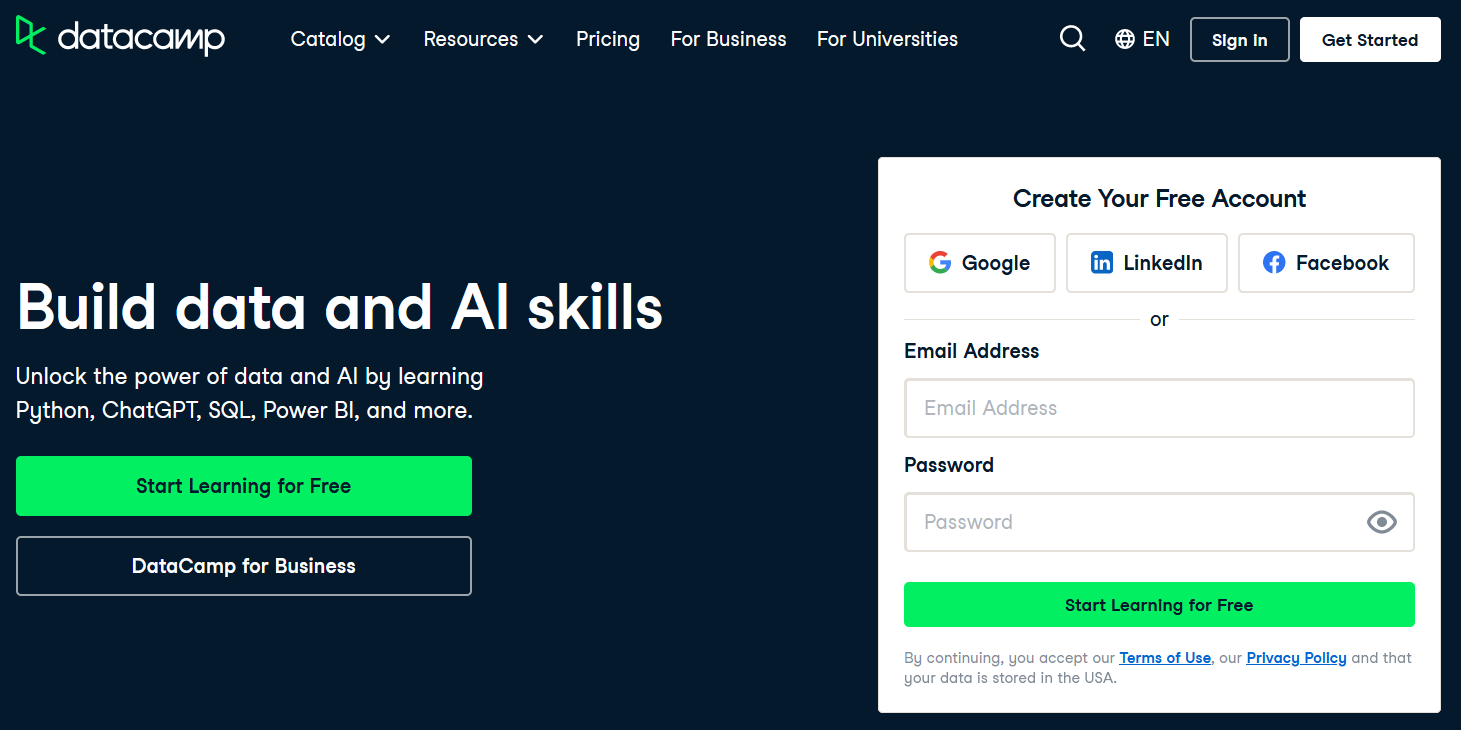
DataCamp is a Udemy alternative with a strong focus on--as the name suggests--data skills. From Python to SQL to Chat GPT prompts, it's got a solid list of courses for data heads.
The platform itself is hands-on and project based, with a good interactive format for learning coding (by actually coding). And it has courses at all different levels, plus learning paths.
For would-be teachers, you can check DataCamp's ongoing list of courses they're looking to hire from. It's not clear how much compensation is per course.
DataCamp Overview
9. Thinkific
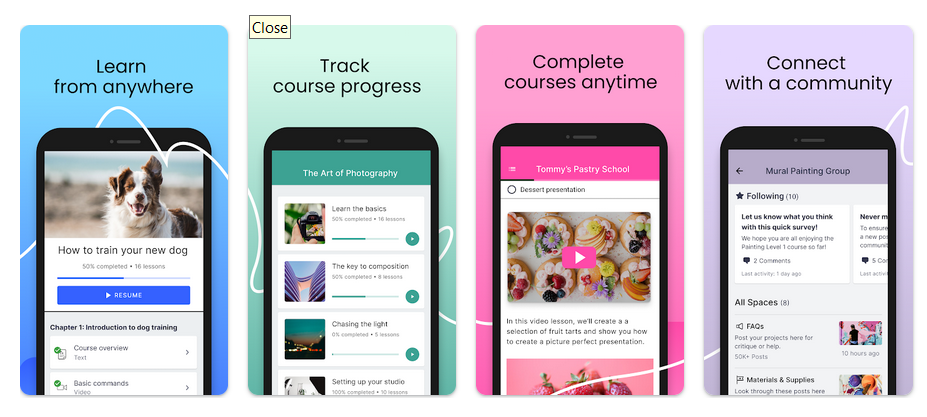
Finally, there's Thinkific. Thinkific is a Udemy alternative that's a good option for a pre-recorded course, with custom course pages, lots of content tools, and ways to build in assessments. The drag-and-drop website builder lets you create course pages that fit your vision, and there are some good marketing tools built in too: sales and reporting, coupons, and an affiliate program.
Thinkific works best for asynchronous courses. It can technically do a live course with Zoom, but it's missing a lot of native engagement features for a robust live course or community. Thinkific also has had a bad track record with apps--with low-ratings for both Apple and Android apps and customers plagued with glitches and problems.
Thinkific Overview
Ready to start?
There's nothing quite like a Mighty Network. You can create the course YOU want, not the course your platform requires. Teach async. Pre-sell it and do it live. Sell a recording after. Mix in community.
The choice is totally yours. And that makes it the ultimate Udemy alternative.
Don't take our word for it. You can try it free for 14 days, no credit card required.
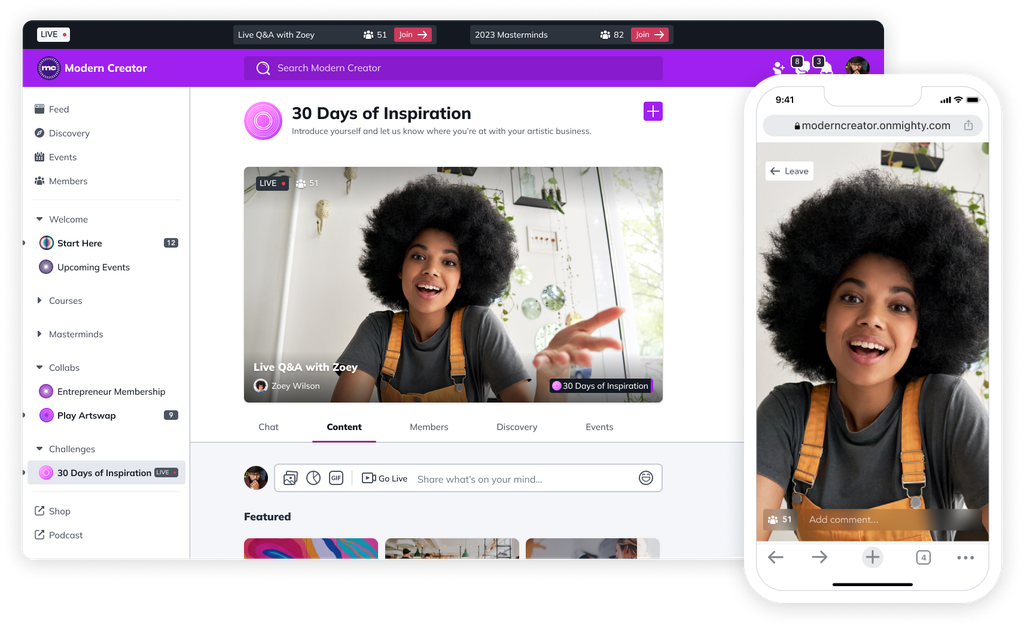
Ready to start building your online course?
Ready to start building your community?
Start a free 14-day trial to explore Mighty—no credit card required.
More like this
Join Mighty Community
Learn the principles of Community Design™ (and see them in action) alongside thousands of creators and entrepreneurs. It's free to join!

Online Courses
Creating a Course
Teaching a Course
Course Platforms
Selling a Course
Communities & Memberships
Community Platforms
Managing a Community
Building a Community
Growing a Community
Monetizing a Community
Content Creation
Creators & Entrepreneurs
Monetization
Content Creation
Starting a Business
Website Builders
Creating & Managing a Website
Events
Event Platforms
Hosting & Marketing Events
Branded Apps
Creating a Mobile App
Coaching Apps
Community Apps
Coaching
Mastermind Groups
Starting a Coaching Business
Coaching Platforms
Filter by Category
Online Courses
Communities & Memberships
Creators & Entrepreneurs
Events
Branded Apps
Coaching
Start your free trial
14 Days. No Credit Card Required.














